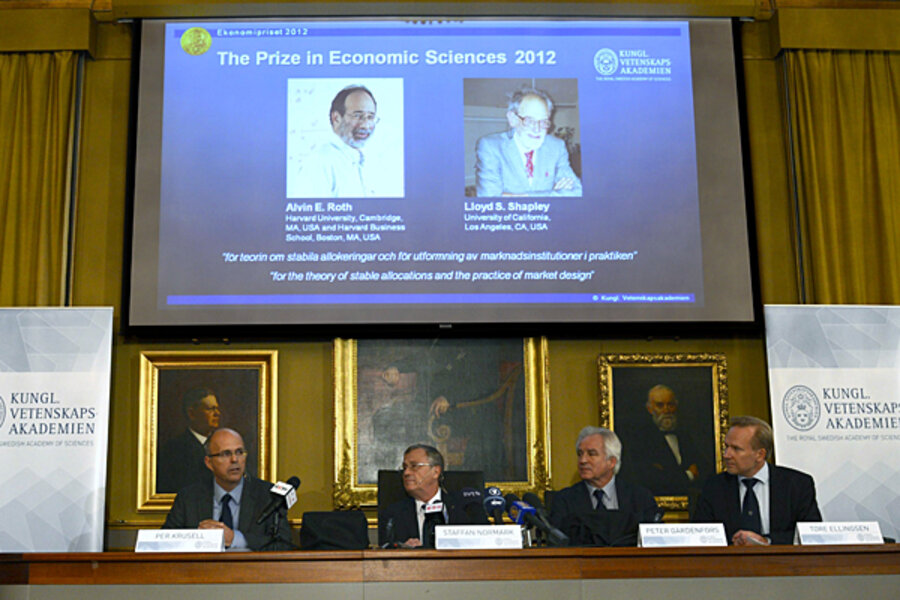Shapley and Roth get the Nobel Prize for economic engineering
Loading...
A much-deserved Nobel prize today for Lloyd Shapley and Alvin Roth for their theoretical and practical work on designing markets. In particular, matching markets where you don’t have prices to help you.
The Royal Swedish Academy of Science released a very readable account of their contributions here. Here’s the introduction:
This year’s Prize to Lloyd Shapley and Alvin Roth extends from abstract theory developed in the 1960s, over empirical work in the 1980s, to ongoing efforts to find practical solutions to real-world problems. Examples include the assignment of new doctors to hospitals, students to schools, and human organs for transplant to recipients. Lloyd Shapley made the early theoretical contributions, which were unexpectedly adopted two decades later when Alvin Roth investigated the market for U.S. doctors. His findings generated further analytical developments, as well as practical design of market institutions.
Traditional economic analysis studies markets where prices adjust so that supply equals demand. Both theory and practice show that markets function well in many cases. But in some situations, the standard market mechanism encounters problems, and there are cases where prices cannot be used at all to allocate resources. For example, many schools and universities are prevented from charging tuition fees and, in the case of human organs for transplants, monetary payments are ruled out on ethical grounds. Yet, in these – and many other – cases, an allocation has to be made. How do such processes actually work, and when is the outcome efficient?
Along with his colleague David Gale, Shapley provided theoretical answers to these questions based on the idea of finding stable allocations (i.e., allocations in which no one would later have an incentive to change their mind). Roth then studied how those answers apply in real markets, e.g., designing algorithms to match doctors to hospitals.
Roth also blogs at the aptly-named Market Design. What did he write about yesterday? How Nobel Prices correlate with chocolate consumption.
P.S. For a moving example of how well-designed matching markets improve human lives, see this post about kidney exchanges.








